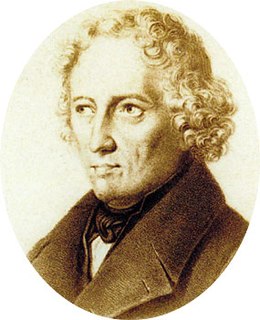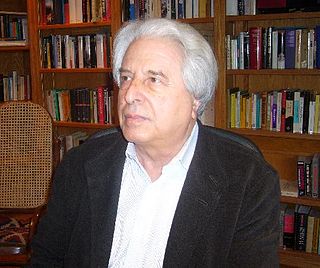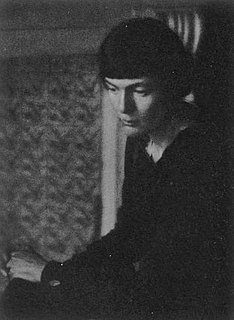A Quote by Alfred Lord Tennyson
Sweet is true love though given in vain, in vain;
And sweet is death who puts an end to pain:
I know not which is sweeter, no, not I.
Love, art thou sweet? then bitter death must be:
Love, thou art bitter; sweet is death to me.
O Love, if death be sweeter, let me die.
...
I fain would follow love, if that could be;
I needs must follow death, who calls for me;
Call and I follow, I follow! let me die.
Related Quotes
Take me as godfather." The man asked, "Who art thou?" "I am Death, and I make all equal." Then said the man, "Thou art the right one, thou takest the rich as well as the poor, without distinction; thou shalt be godfather." Death answered, "I will make thy child rich and famous, for he who has me for a friend can lack nothing.
Stick to God! Who cares what comes to the body or to anything else! Through the terrors of evil, say-my God, my love! Through the pangs of death, say-my God, my love! Through all the evils under the sun, say-my God, my love! Thou art here, I see Thee. Thou art with me, I feel Thee. I am Thine, take me. I am not of the world's but Thine, leave not then me.
Jesus offered a single incentive to follow himto summarize his selling point: 'Follow me, and you might be happy-or you might not. Follow me, and you might be empowered-or you might not. Follow me, and you might have more friends-or you might not. Follow me, and you might have the answers-or you might not. Follow me, and you might be better off-or you might not. If you follow me, you may be worse off in every way you use to measure life. Follow me nevertheless. Because I have an offer that is worth giving up everything you have: you will learn to love well.'
Sweet is the rose, but grows upon a brere;
Sweet is the juniper, but sharp his bough;
Sweet is the eglantine, but stiketh nere;
Sweet is the firbloome, but its braunches rough;
Sweet is the cypress, but its rynd is tough;
Sweet is the nut, but bitter is his pill;
Sweet is the broome-flowre, but yet sowre enough;
And sweet is moly, but his root is ill.



































